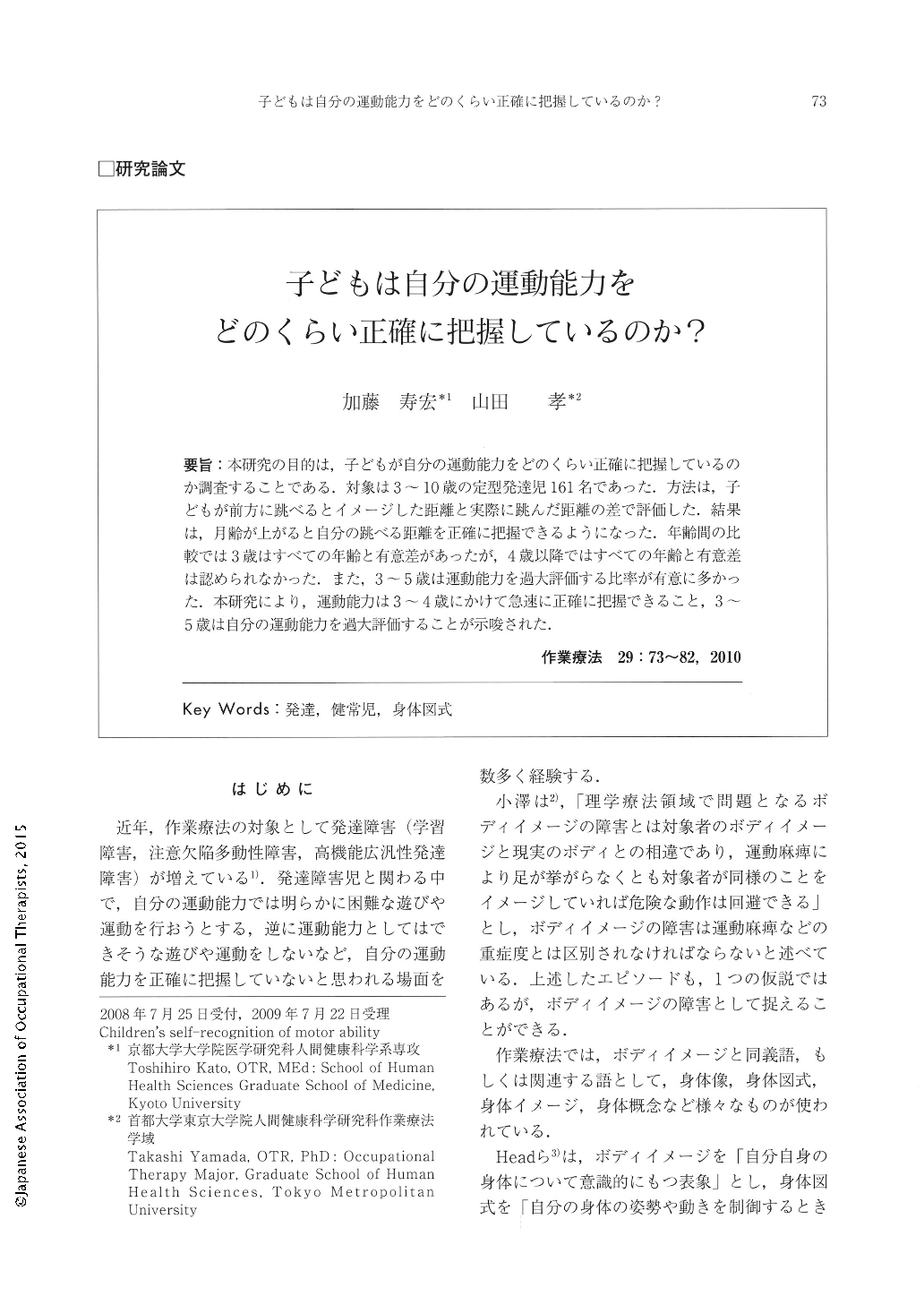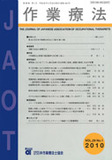Japanese
English
- 販売していません
- Abstract 文献概要
- 1ページ目 Look Inside
- 参考文献 Reference
要旨:本研究の目的は,子どもが自分の運動能力をどのくらい正確に把握しているのか調査することである.対象は3〜10歳の定型発達児161名であった.方法は,子どもが前方に跳べるとイメージした距離と実際に跳んだ距離の差で評価した.結果は,月齢が上がると自分の跳べる距離を正確に把握できるようになった.年齢間の比較では3歳はすべての年齢と有意差があったが,4歳以降ではすべての年齢と有意差は認められなかった.また,3〜5歳は運動能力を過大評価する比率が有意に多かった.本研究により,運動能力は3〜4歳にかけて急速に正確に把握できること,3〜5歳は自分の運動能力を過大評価することが示唆された.
This study investigated how accurately children recognize their own motor ability. 161 normally developing children from 3 to 10 years old were asked to first estimate how far they could leap forward, and then, to actually leap. The discrepancy between the estimated distance and the actual distance were measured to evaluate the accuracy of their estimation. The results indicate that the estimation accuracy improved in accordance with age (r= -0.42, p<0. 01). When comparing ages, there was significant difference between children of age 3 and other ages. However, no significant difference was found among ages above 4. A significantly higher percentage of children between 3 and 5 over-estimated their own ability, compared to other ages. These results suggest that the recognition of one's own motor ability progresses rapidly from 3 to 4, and that children between the ages of 3 and 5 tend to over-estimate their own ability. These findings are discussed with regard to children's willingness to make new challenges.

Copyright © 2010, Japanese Association of Occupational Therapists. All rights reserved.


